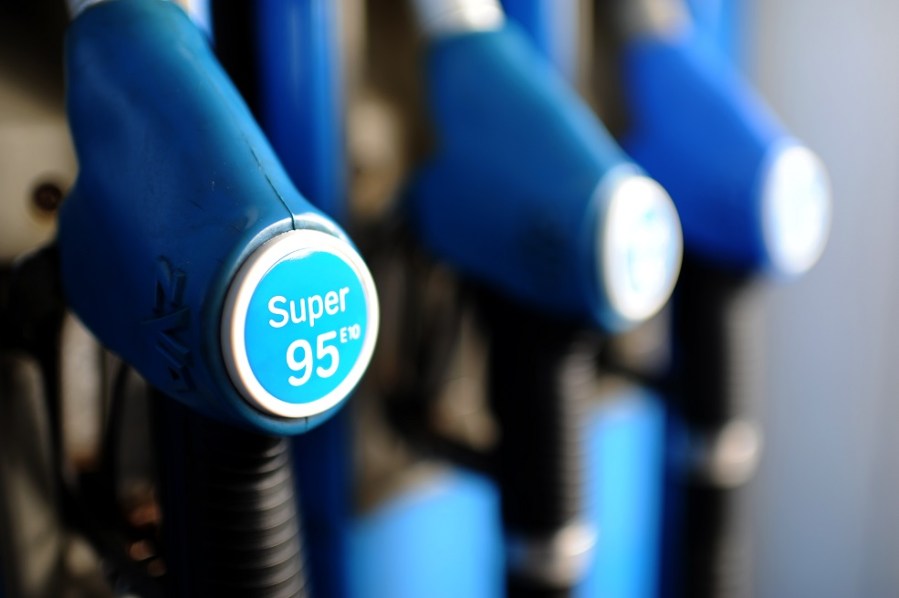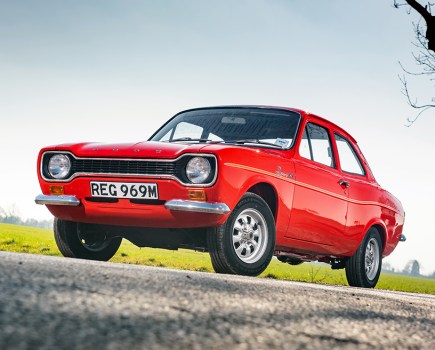Potentially harmful E10 petrol looks set to be introduced in the UK next year, with the Government having finally issued a response to a 2018 consultation over whether it should be introduced and how best to do so. It’s bad news for those relying on the current E5 petrol, which under new proposals will only be available in the more expensive Super grade.
Unleaded petrol in the UK contains up to 5 per cent bioethanol, a grade known as E5. E10 petrol contains up to 10 per cent bioethanol and is not yet available in the UK. But why the controversy? Well E5 unleaded can generally be used in any petrol-engined car without issue, but with E10 things aren’t quite that simple. The DfT’s own research on suitability problems with higher ethanol blends identified several potential issues on older vehicles, including degradation to flexible fuel hoses and seals, blocked fuel filters, damaged fuel pumps, corroded carburettors, blockage and degradation of seals on injectors and pressure regulators and fuel tanks that are not resistant to ethanol. Fuel in stored vehicles can also go stale much quicker, leading to disposal problems.
The aim of the 2018 proposal was to ensure that motorists with vehicles not approved for use with E10 could still access E5 in the ‘Premium’ grade rather than having to fork out extra on the ‘Super’ grade, while those with compatible vehicles could choose to fill up with a greener petrol at larger filling stations.
There were 100 respondents to the original consultation. Classic car owners, motoring organisations and other respondents that depend on low ethanol fuel argued that an E5 grade must remain available for as long as possible, but the Government says that the introduction of E10 was broadly supported, particularly by biofuel producers and fuel suppliers.

Sadly, they did not agree that the proposed approach would be effective. Fuel suppliers and retailers were clear that the UK fuel sector is highly optimised around supplying two grades of petrol and two grades of diesel. Introducing a third grade of petrol would require upgrades at each stage of the supply chain, and those upgrades would take at least two to three years to complete. Biofuel producers were also concerned that if E10 were introduced as an additional choice at some filling stations, it would not achieve a significant market share. This has been the case in Germany, where E10 accounts for only around 10 per cent of the market.
Ultimately, the Government has agreed with this. It has decided that introducing E10 as an additional range would be unlikely to deliver the desired outcomes (including emission savings) in a cost-effective manner, and therefore it does not propose to continue with this approach.
Instead, the Government has issued a new consultation running until April 19, which proposes that E10 should be introduced as a direct replacement for the current E5 95-octane Premium petrol grade. It also proposes the ongoing availability of E5 petrol in the high-octane Super grade for those that need access to lower ethanol petrol. It argues that cherished classics can be run on high-octane fuel, and by the time E10 is introduced in 2021 at the earliest, it expects non-cherished vehicles not approved for E10 use to account for less than one per cent of vehicles. One silver lining from the new consultation is that E5, albeit in Super grade, would be available for at least five years after E10 is introduced.
Our view is that a cost penalty of buying Super grade is a damaging one, and the lack of a Premium E5 could limit so-called non-cherished cars from ever having the opportunity to become cherished.
Subject to the responses received and any legislative process, the consultation could well result in E10 being introduced at forecourts next year. To have your say, go to www.gov.uk/government/consultations/introducing-e10-petrol.





